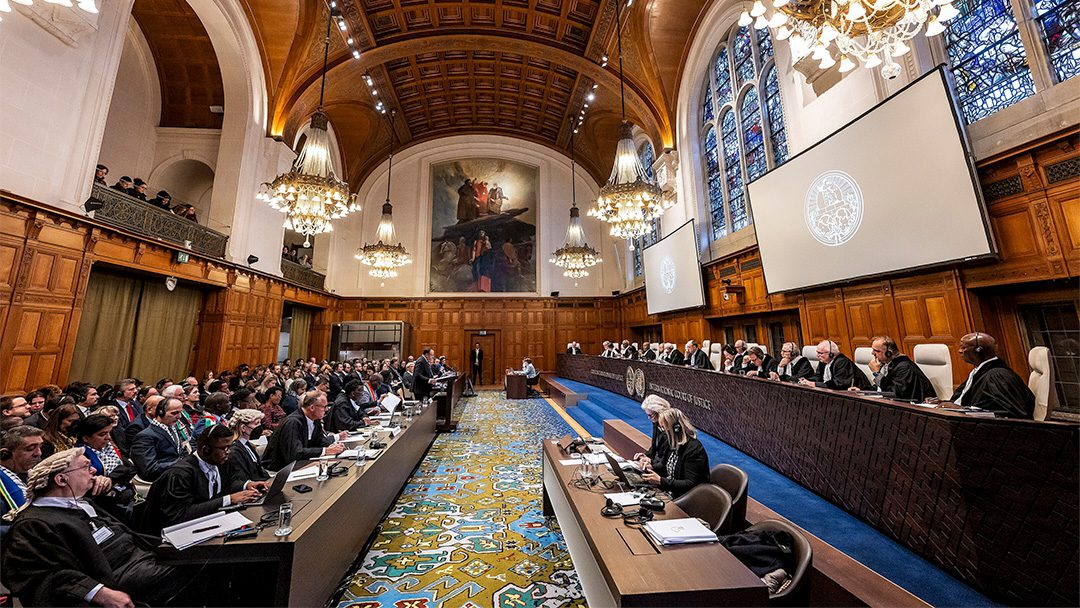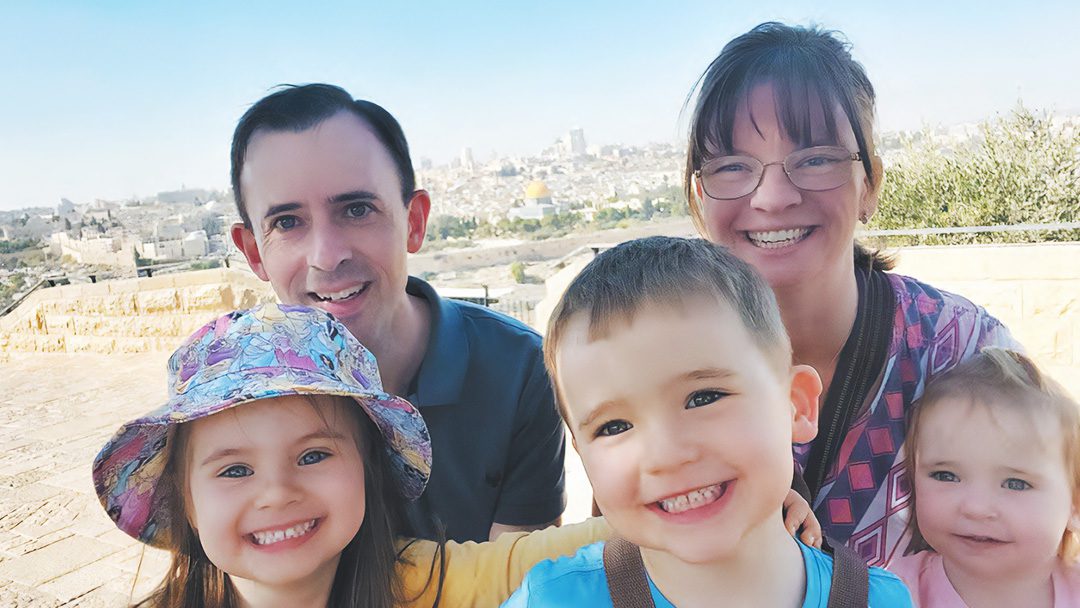Late December 2023, South Africa brought proceedings in the International Court of Justice (ICJ) under the Genocide Convention, claiming that Israel is a racist apartheid entity that is trying to eliminate the Palestinians (and has been doing so ever since 1948) and the only way to deal with this is to order Israel to bring an immediate and complete end to the conflict in Gaza.
Israel argues it is Hamas, not Israel, that has a genocidal intention and that Israel is a legitimate state based on the rule of law, fighting a justified war against Hamas, not the Palestinian people. While the number of deaths and extent of destruction in Gaza is high, this is an unhappy but inevitable consequence of the war that Hamas started and Israel never wanted.
On 26 January 2024, the International Court of Justice (ICJ) decided that it is ‘plausible’ that Israel is committing
genocide of the Palestinian people. The Court acknowledged that on 7 October, “Hamas and other armed groups present in the Gaza Strip carried out an attack in Israel, killing more than 1,200 persons, injuring thousands and abducting some 240 people, many of whom continue to be held hostage”, and at the end of its
judgment demanded the release of the hostages. But the Court at no point made any reference to Hamas’ ongoing use of force against Israel and its genocidal campaign to eliminate the Jewish people.
The Israeli-nominated judge ad hoc Aharon Barak was highly critical of the Court’s approach, accusing the Court of “imputing the crime of Cain to Abel”.
Constructive Ambiguity
The Court’s 25-page judgment is a prime example of “constructive ambiguity”—a technique (usually ascribed to Henry Kissinger) employed to disguise an inability to resolve a contentious issue on which the parties remain far apart and to do so in a manner that enables each to claim to obtain some concession on it.
The Court expressed strong criticism of Israel’s use of force in Gaza and of the statements made by a number of Israeli leaders that appeared to promote largescale destruction and killing of Palestinians in Gaza in response to the attacks of 7 October. But it said it cannot (and should not) at this stage decide that Israel is committing genocide. Accordingly, the Court did not grant the extreme measure of a cease-fire that South Africa had demanded.
Nevertheless, it ordered Israel to “make sure it does not commit genocide”. Israel, of course, considers that it has no intention to destroy the Palestinian people and thus is not committing genocide.
Dodging the difficult question of whether genocide is being committed, the Court called on Israel to “take immediate and effective measures to enable the provision of urgently needed basic services and humanitarian
assistance to address the adverse conditions of life faced by Palestinians in the Gaza Strip”. This is basically an
obligation Israel already has under international humanitarian law. The ICJ expressed its “deep concern” about the situation of the hostages and “calls for their immediate and unconditional release”. But while these
are nice words, they are totally ineffective as Hamas is not a party to these proceedings.
Judge Aharon Barak
In his powerful dissenting opinion, Israeli Judge ad hoc Aharon Barak stated that this is, in effect, “to impute the crime of Cain to Abel”. This is a reference to Genesis 4, where Cain murders his brother Abel in jealousy.
Barak was one of only two of the seventeen judges who opposed the majority’s decision. (The other was Ugandan judge Julia Sebutinde, who opined that South Africa’s claims are groundless and the case should be
dismissed).
Barak emphasised that the Genocide Convention was established on the ashes of the Holocaust. It created a new international crime—the “crime of crimes”, the most horrendous crime in existence. The Jewish people know better than any other people what genocide is, and the State of Israel was established to ensure that genocide never happens again.
Genocide is the killing members of a group with the intention of destroying that group. At the heart of the concept tent to destroy (eliminate) the group as such. Absent such intention there may be widespread destruction constituting a violation of international humanitarian law or criminal law, but there can be no
genocide.
Barak explained that he himself experienced the full force of Nazi attempt at genocide. He was born in Kaunas, Lithuania, and miraculously survived the Nazi onslaught. Only 5% of the Jews of Lithuania survived.
Evidence of Genocide?
According to Barak, the Court’s decision that it is “plausible” that Israel intends to destroy not just Hamas but the Palestinians as such is most problematic. The Court based this conclusion on the combination of massive number of casualties and extent of destruction, the fact that Israel was aware that its campaign would cause a humanitarian crisis, and a number of select statements by Israeli leaders shortly after 7 October.
But that takes the statements of Israeli leaders out of context, places huge reliance on dubious information provided by Hamas, and flies in the face of all the evidence provided by Israel that Israel is trying in every possible way to minimise civilian casualties. It ignores the fact that this is a highly complex and difficult urban war, in which Hamas has a deliberate strategy of embedding its combatants in civilian places like schools,
mosques and hospitals.
Inexplicably, the Court virtually ignored that huge amount of evidence that Israel had provided to the Court of its efforts to minimise civilian casualties, and of Hamas’ strategy of maximising civilian casualties.
By stating that it is “plausible” that Israel is committing genocide, the Court is allowing international law to be
politicised. South Africa clearly used the Genocide Convention to advance the Palestinians’ political cause, and to support the campaign of Hamas.
It is no secret that the ANC has close ties with Hamas and the Palestinian Authority. Evidence has even emerged that Iran was involved and maybe even financed this case in The Hague. The Court also relied heavily on evidence provided by UNRWA, the Palestinian refugee organisation. However, UNRWA is far from neutral in this matter. In recent days, a lot of evidence is emerging that UNRWA is heavily infiltrated by Hamas. According to the Wall Street Journal, 10 per cent of UNRWA’s 12,000 employees are affiliated with Hamas.
Perhaps more importantly, South Africa’s selective and politicised weaponisation of the Genocide Convention against Israel is diverting the attention of the world from the fact the genocidal campaign launched by Iran, and implemented through its proxies including Hamas (Gaza and West Bank) and Hezbollah (in Lebanon), to eliminate the Jewish people in Palestine.
Hamas is a proxy of Iran, and shares Iran’s intent to eliminate the Jewish people in Palestine. As its 1988 Charter shows, it is an Islamist movement committed to the use of violence in order to “obliterate Israel” and “raise the banner of Allah over every inch of Palestine”. For Hamas, Palestinian Islamic Jihad and other similar Islamist groups, the mere existence of the State of Israel is seen as an obstacle to the reign and rule of Allah.
Consequences of the Decision
The “constructive ambiguity” approach avoids making a clear decision based on the merits of the case. Ad hoc Judge Barak shows that the evidence presented to the Court simply did not provide a basis for concluding that it is plausible that Israel is committing genocide. The Court simply should have recognised this and dismissed South Africa’s claims.
By giving credibility to South Africa’s politically driven claims, the Court is allowing the law to be politicised.
All of this degrades the authority of the Court, and the integrity of the legal system. And it undermines the rights of sovereign states to defend their citizens against terror.












0 Comments